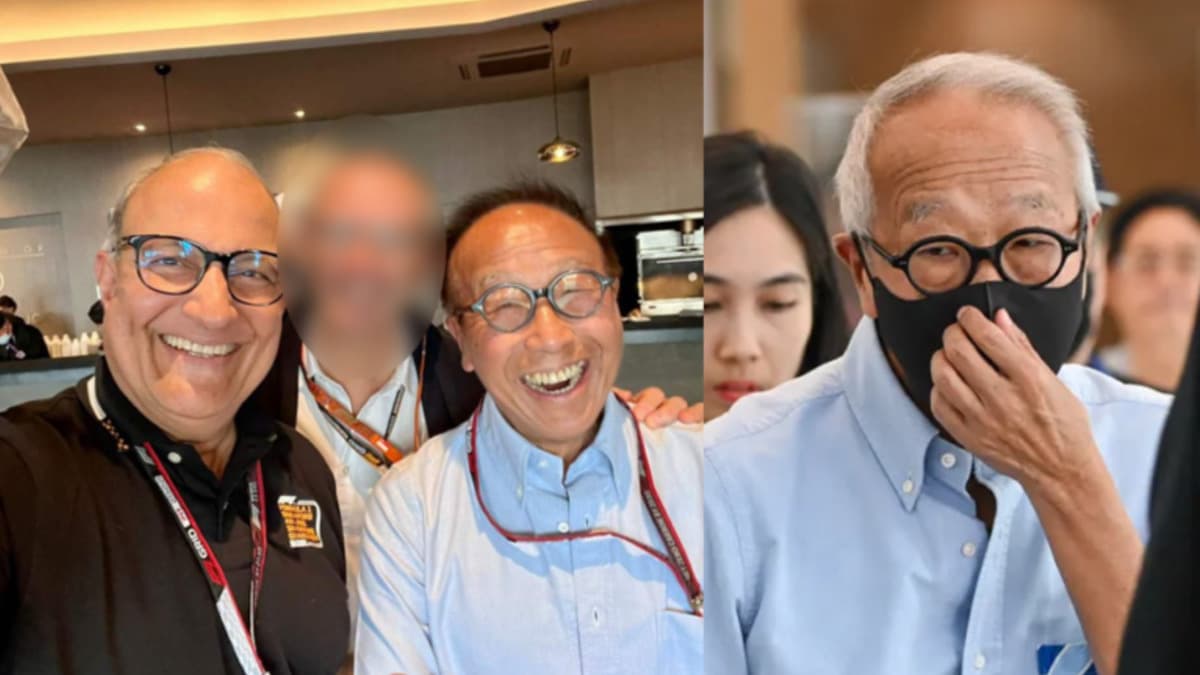Sentencing for Ong Beng Seng set for 15 August after guilty plea in Iswaran-linked case
Principal District Judge Lee Lit Cheng has reserved sentencing for hotelier and tycoon Ong Beng Seng to 15 August 2025, after he pleaded guilty to abetting former transport minister S Iswaran in obstructing justice. The court is considering whether Ong’s severe medical condition warrants judicial mercy and a fine instead of jail.

- Ong pleaded guilty to helping Iswaran delay payment for a S$5,700 flight ticket, obstructing a CPIB probe.
- Prosecutors and defence agreed that judicial mercy should be considered due to Ong’s life-threatening multiple myeloma.
- The defence urged for a fine instead of jail, citing Ong’s age, ill health, and contributions to Singapore’s global reputation.
SINGAPORE: Principal District Judge Lee Lit Cheng has reserved sentencing in the case of property tycoon Ong Beng Seng to 15 August, after Ong pleaded guilty on 4 August 2025 to a charge linked to former transport minister S Iswaran.
The defence successfully requested an extension of Ong’s bail, which remains set at S$800,000. Both parties will return for sentencing at 2.30pm on 15 August.
In court, Deputy Chief Prosecutor (DCP) Christopher Ong confirmed that both prosecution and defence agreed the court should consider judicial mercy — a discretionary power to impose a more lenient sentence in light of exceptional circumstances.
The defence argued for a fine instead of jail, citing Ong’s life-threatening health conditions.
DCP Ong said the prosecution accepted there was a basis for judicial mercy but asked the court to determine whether Ong’s illness should reduce the sentence.
Ordinarily, Ong’s offence would attract a jail term starting at 12 weeks, reduced to eight weeks for his early guilty plea.
The defence’s position was nine weeks, reduced to six.
However, the court must weigh Ong’s incurable medical condition — advanced multiple myeloma — which severely compromises his immune system, making him prone to infections.
Earlier, Ong, aged 79, admitted to abetting Iswaran in obstructing the course of justice by helping him pay S$5,700 (US$4,480) for a business class ticket from Doha to Singapore.
The payment was delayed by months and surfaced when the Corrupt Practices Investigation Bureau (CPIB) found Iswaran’s name on the manifest while probing another matter.
A second charge, for instigating Iswaran to obtain flights and a hotel stay while knowing his official role related to Ong’s business, was taken into consideration for sentencing.
Proceedings delayed by fire alarms
The hearing on 4 August began later than planned after two false fire alarms forced the court to stand down. Proceedings, set for 9.30am, resumed around 10.20am.
The prosecution team included DCP Ong and Deputy Public Prosecutors Sarah Siaw, Kelvin Chong and Goh Qi Shuen.
Ong was represented by Senior Counsel Cavinder Bull and Adam Maniam from Drew & Napier, with Senior Counsel Jason Chan, Lee Bik Wei and Cheryl Chong from Allen & Gledhill.
Arguments on culpability and health risks
DCP Ong highlighted three aggravating factors: the obstruction of serious investigations involving a sitting minister; Ong’s pivotal role in alerting Iswaran about the CPIB probe; and Ong’s own implication in the investigation.
Despite this, DCP Ong said Ong’s culpability was lower than Iswaran’s, who acted with premeditation to avoid scrutiny.
Bull, leading Ong’s defence, detailed Ong’s severe health issues. He described Ong’s multiple myeloma as incurable and life-threatening, adding that it makes Ong highly vulnerable to fatal infections.
The defence stressed that Ong’s condition is tightly managed at home, but prison would severely increase his health risks.
Ong suffers from peripheral vascular disease in both feet and a non-healing toe wound, posing risks of infection and gangrene. His compromised spine, supported by a metal rod, increases the risk of infection and serious injury if he falls.
Bull argued that prison conditions would expose Ong to more pathogens and delays in treatment. Unlike his current care, any complication in prison would first need public hospital referrals, losing crucial time.
“He is living within a very narrow margin where there is no room for error,” Bull told the court.
Judge questions overseas travel
Judge Lee asked why Ong, despite fragile health, had been allowed to travel overseas while on bail.
Cavinder Bull explained that Ong travelled exclusively by private jet, which significantly reduced contact with others and allowed a controlled environment — unlike prison conditions.
The defence also referred to letters from the Singapore Prison Service (SPS), which described its healthcare as “adequate.” Bull argued that a standard level of care would not meet Ong’s complex medical needs.
He emphasised that SPS characterised its healthcare as “comparable” to public hospitals, but this fell short of the specialist attention Ong currently receives.
Call for fine instead of jail
Bull urged the court to impose only a stiff fine, citing Ong’s serious condition, age, clean record, and cooperation with authorities.
He also noted Ong’s contributions to Singapore’s global profile, such as bringing Formula One to Marina Bay and staging major concerts including Coldplay and Michael Jackson.
Bull contrasted Ong’s role with Iswaran’s, describing the former minister as the “prime mover” who initiated the obstruction. Ong’s involvement, he said, was brief and secondary.
“The culpability of Ong is no more than half of Iswaran’s,” Bull told the court.
Bull cited past cases where courts applied judicial mercy for offenders with grave health conditions, arguing that Ong’s situation merited similar treatment.
DCP Ong countered that a defence expert had based opinions on US prison conditions, which might not accurately reflect Singapore’s facilities.
However, the prosecution did not dispute that Ong’s health should be a central consideration when deciding the appropriateness of jail.







